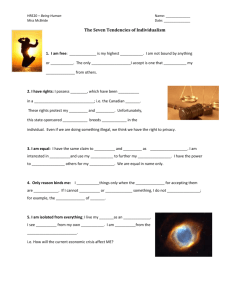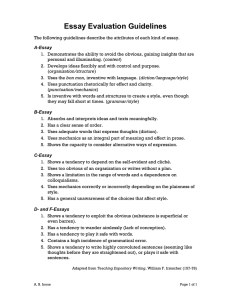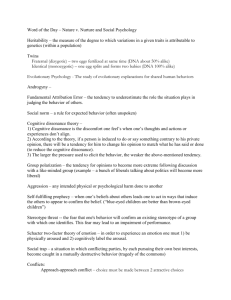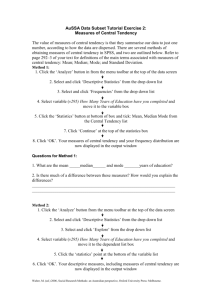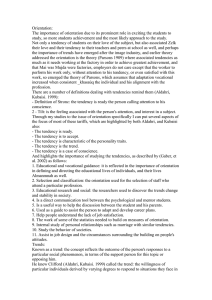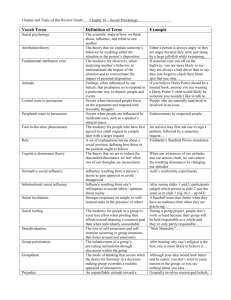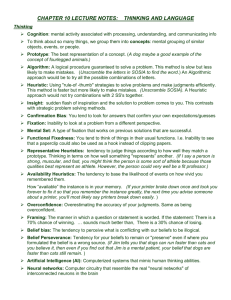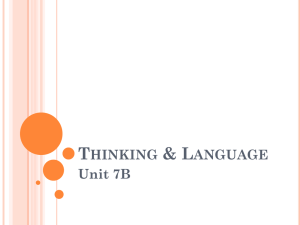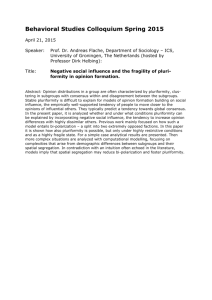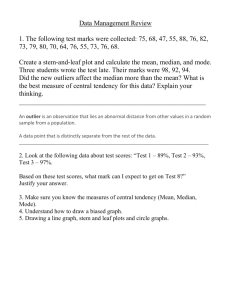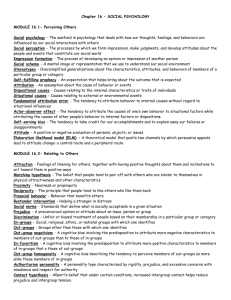Common unhelpful thinking styles
advertisement
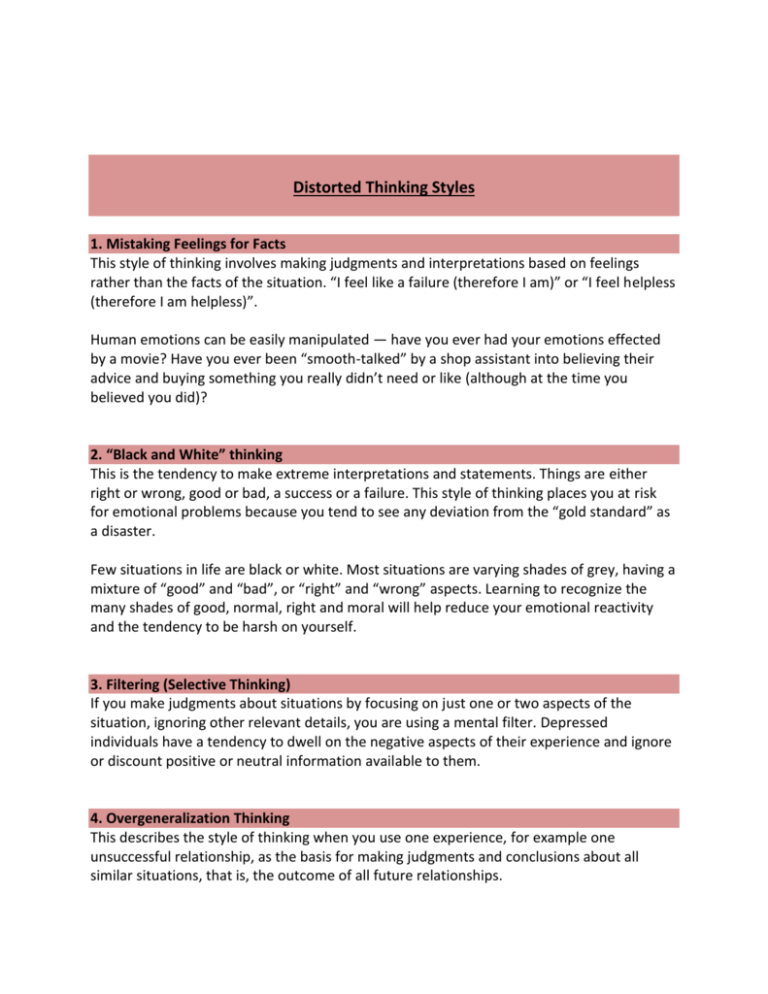
Distorted Thinking Styles 1. Mistaking Feelings for Facts This style of thinking involves making judgments and interpretations based on feelings rather than the facts of the situation. “I feel like a failure (therefore I am)” or “I feel helpless (therefore I am helpless)”. Human emotions can be easily manipulated — have you ever had your emotions effected by a movie? Have you ever been “smooth-talked” by a shop assistant into believing their advice and buying something you really didn’t need or like (although at the time you believed you did)? 2. “Black and White” thinking This is the tendency to make extreme interpretations and statements. Things are either right or wrong, good or bad, a success or a failure. This style of thinking places you at risk for emotional problems because you tend to see any deviation from the “gold standard” as a disaster. Few situations in life are black or white. Most situations are varying shades of grey, having a mixture of “good” and “bad”, or “right” and “wrong” aspects. Learning to recognize the many shades of good, normal, right and moral will help reduce your emotional reactivity and the tendency to be harsh on yourself. 3. Filtering (Selective Thinking) If you make judgments about situations by focusing on just one or two aspects of the situation, ignoring other relevant details, you are using a mental filter. Depressed individuals have a tendency to dwell on the negative aspects of their experience and ignore or discount positive or neutral information available to them. 4. Overgeneralization Thinking This describes the style of thinking when you use one experience, for example one unsuccessful relationship, as the basis for making judgments and conclusions about all similar situations, that is, the outcome of all future relationships. Key words used in overgeneralizing are: never, always, all, every, none, no one, nobody, everyone or everybody. “I always screw up.” “I never get to work on time.” “Everybody thinks I’m hopeless.” 5. Disqualifying the positive This is the tendency to reject positive input from others by devaluating its worth or ignoring its significance. In general we tend to discount, dismiss or ignore information that contradicts our current view of things. Depressed people will predictably discount the positive. Some one who is optimistic is just as likely to reject any negative feedback. 6. “Should” and “Must” statements “I must not upset others”, “I must always be polite”, “I should not get angry”, “I should always be on time”, ‘I should know what I want to do with my life”. Having fixed, inflexible ideas of how things should, must or need to happen place you at risk for stress reactions, depression and anxiety. What are the reasons you should or must do these things? 7. Catastrophising (What if....) Catastrophising refers to the tendency of seeing all too easily how any situation has the potential to become a disaster. Although it is a good idea to anticipate how things can go wrong in life so that preventative steps can be taken, to see impending disasters everywhere — even in objectively non-dangerous situations creates unnecessary anxiety. 8. Self-Blame — (It’s my Fault) Self-blame refers to the tendency to take personal responsibility and blame for anything unpleasant that happens. The most common, observable symptom of self-blame is incessant apologizing. 9. Mind Reading and Jumping to Conclusions Mind reading is a distorted thinking style which you assume you know what others are thinking, or you thought others know what you are thinking, without actually checking whether this is true or not. Mind-reading can cause significant problems when this assumption is incorrect.

